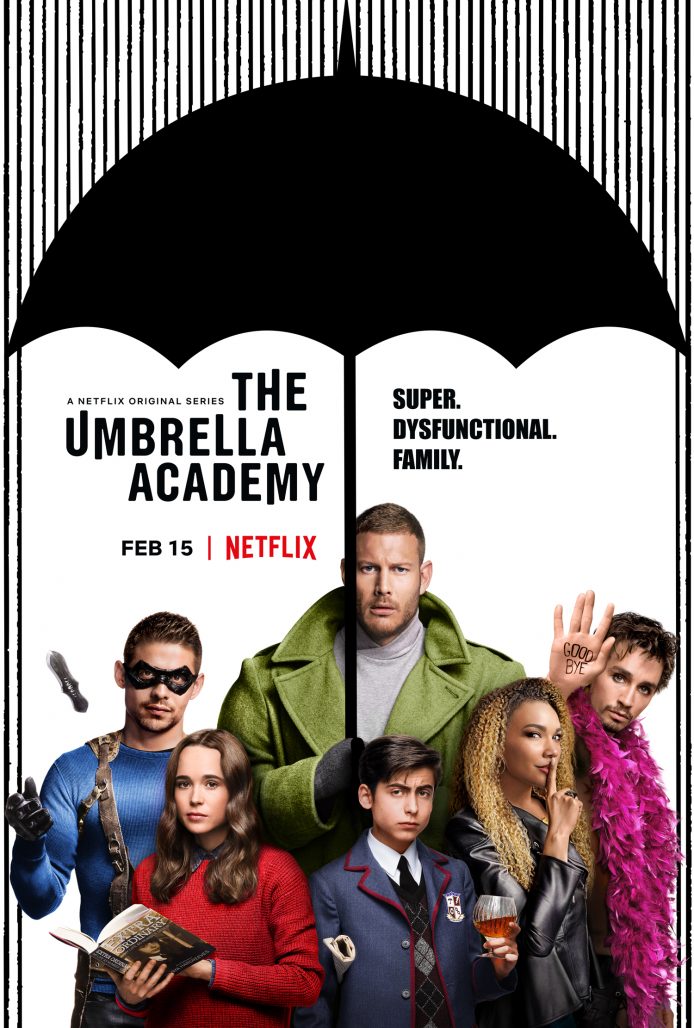
So on the one hand, I’m overjoyed to say that Netflix’s The Umbrella Academy adaptation has all the absurdity and chaos of the source material. On the other hand, I’m bummed because it feels like some of the comic’s inherent joy was lost in the jump between the page and the screen.
In premise and sometimes in execution, The Umbrella Academy plays out like a nightmarish version of Wes Anderson’s The Royal Tenenbaums. On October 1st, 1989, 43 women from across the globe who had shown no signs of pregnancy at the beginning of the day suddenly gave birth to children. Sir Reginald Hargreeves (Colm Feore), “eccentric billionaire and adventurer” found and adopted seven of these children. Quickly, he discovered that they had incredible abilities. He raised and trained them with a sense of discipline and distance that emotionally scarred and pushed them to their physical limits– all in the hopes of creating a team of heroes, The Umbrella Academy, that could one day save the world. Of course, the experiment was a failure. As adults, the members of the Academy have scattered to the wind (and one of them died). But now, as the series begins, the Academy is forced to reunite because their father is dead. And, as their unnamed brother, Number Five (Aidan Gallagher), tells them after a multi-decade time travel stint, the world is going to end in just a few short days.
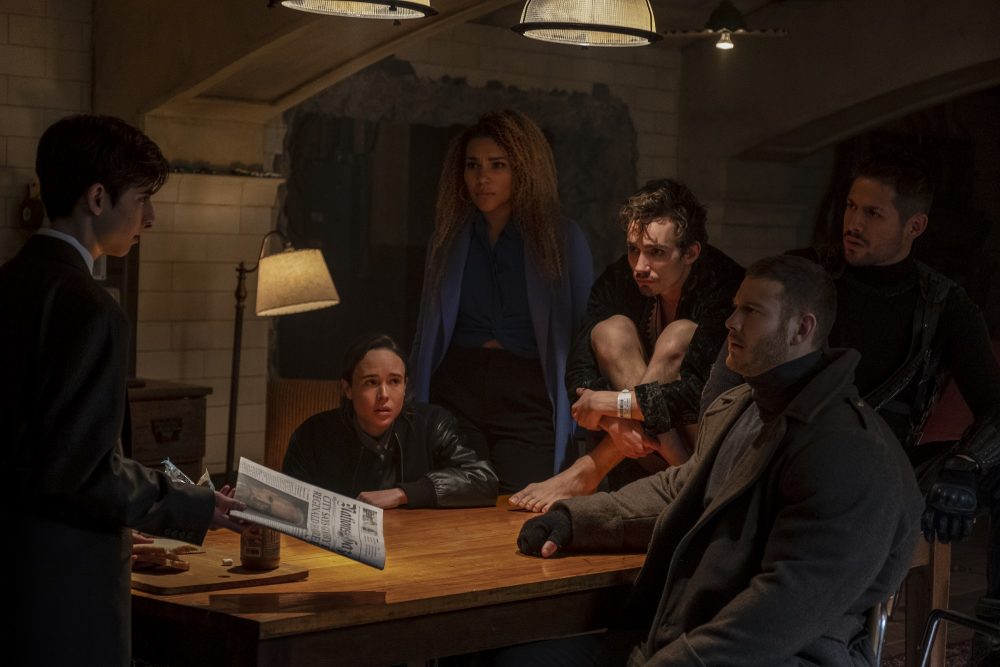
Inherently, this is a melodramatic presence. And indeed, The Umbrella Academy comic, like the show it has now become, rarely has any qualms about scratching and tugging at its characters’ scars. Whether the plot is hammering on the way Klaus’s (Robert Sheehan) inability to control his power to commune with the dead sparked his heavy drug usage or how Vanya (Ellen Page) is constantly made to feel as if she doesn’t belong in the family at all because she doesn’t have powers in the way her siblings do, it almost always feels like The Umbrella Academy has its finger on the “sad” button of our emotional switchboard. And that’s not inherently a bad thing– I like a good cry as much as anyone does. However, it’s tough to watch a show that constantly hits one note again and again. At a certain point, I found myself tired of hearing about yet another way Hargreeves abused his children– I just wanted a laugh…just a little one.
Indeed, to some extent, any live action The Umbrella Academy adaption was doomed to feel cloying in this way. The comics themselves are certainly just as grim-dark as the Netflix show is. But what the comics has that the show does not is the constant juxtaposition of that darkness with the strange physicality and surprising humor of Gabriel Bá’s artwork. From the crazed and exaggerated expressions the characters find themselves showcasing throughout the story to the way strange elements like murderous robots and wrestlers fighting squids are incorporated into the fabric of the world, you get the sense that The Umbrella Academy comic takes itself seriously, but not that seriously. Even the darkest scenes of the book are rendered with vibrant purples instead of pure shadowy blacks. That silent, inherent sense of joy simply does not make itself known quite often enough throughout the Netflix show.
Now, that’s not to say that there is no levity to be found in Netflix’s The Umbrella Academy. While most of the Hargreeves family attempt to figure out what causes the apocalypse Number Five lived through before finding his way back in time to them, the time traveling boy has special problems of his own. Two assassins, Hazel (Cameron Britton) and Cha-Cha (Mary J. Blige), have followed him through time. They constantly complain about the bureaucracy that plagues the organization that they belong to, but both are set on fulfilling their professional obligation to kill Number Five.
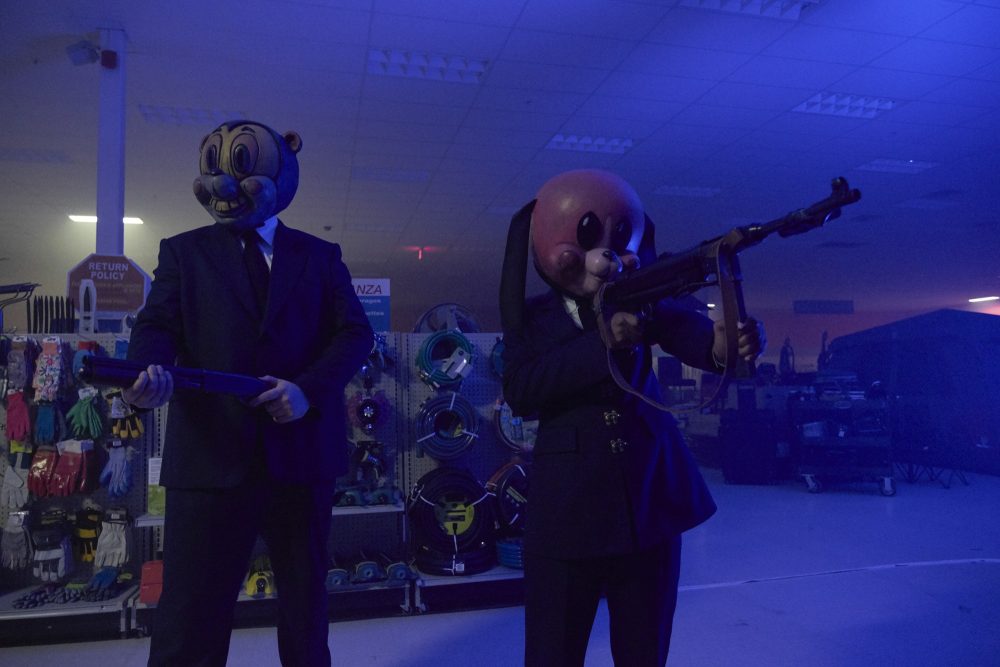
During this season of The Umbrella Academy, I was delighted every time the camera turned towards Gallagher, Britton, and Blige. While everyone in the show does a fine job performing their respective roles, it’s clear that these three were given the biggest emotional range of scenes to work with. And WOW did they work them. Gallagher’s character has lived through multiple decades in a barren wasteland and now finds himself trapped back inside his teenage body, so his sense of disenchantment and unbridled cynicism constantly and violently contrasts against his seemingly innocent figure. Showcasing a similar level of commitment, Blige fully falls into the ruthless and psychopathic nature of her character. And to contrast with them both, Britton gives a surprisingly restrained yet equally affecting performance as Blige’s murderous counterpart.
Moreover, beyond the three of them, I found myself constantly enraptured by the production design of Netflix’s The Umbrella Academy. While the show is ostensibly set in the present day, much of the world feels like it exists in an earlier era. There are vintage town cars on the road and there’s a donut shop that looks like it was pulled straight off a Pinterest board called “Classic Americana.” I didn’t catch a single smartphone on screen, either. The Hargreeves family mansion is a sprawling complex held up by polished pillars. Vintage furniture, from chairs to rugs, fill every room. Light shines through in irregular patterns thanks to the bevy of stained glass. The family caretaker, a sentient CGI Chimpanzee named Pogo (voiced by Adam Godley), is flawlessly integrated into the world as well. While the characters in The Umbrella Academy don’t always get a chance to showcase the full range of their emotional lives, their world definitely feels lived in.
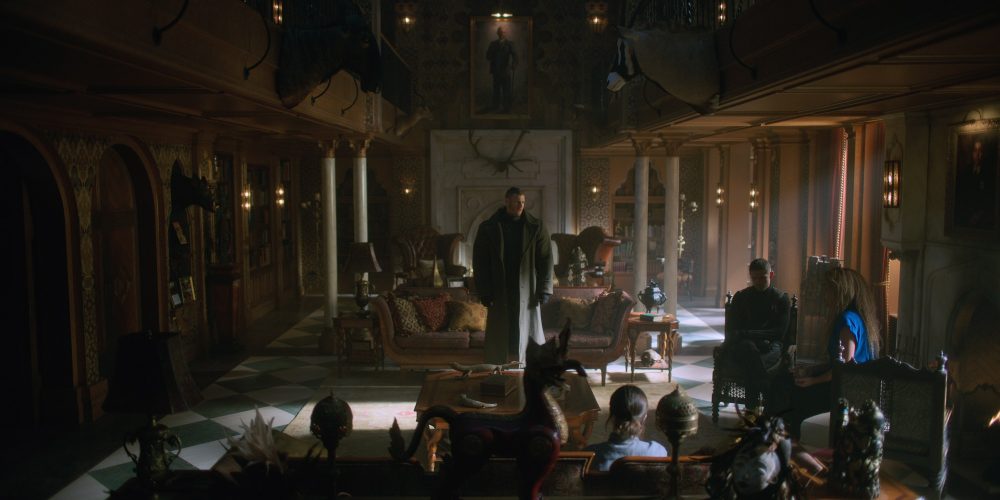
Truly, if there’s only one reason you watch Netflix’s The Umbrella Academy, it should be for the set pieces. The action scenes are dynamic and give each of the Hargreeves family a chance to shine (I’m a particularly big fan of Allison (Emmy Raver-Lampman), who can distort and change reality simply by saying “I heard a rumor…”). The hand-to-hand combat, when it happens, is also an enormous delight to watch.
Some of the quiet moments are as gorgeous as the action scenes, as well. There’s a dance sequence set in Hargreeves Mansion that visually unfolds like a shot in Celebrity Squares. There’s another sequence that hangs on Number Five walking down a city street, the seasons suddenly changing as he warps through time. Even the title card for the series finds a fun and unique way to pop up in each episode (check out a reference to My Chemical Romance’s “Helena” in episode three).
Netflix’s The Umbrella Academy is ambitious. It folds together the first two arcs of the comic far more effectively than I imagined it could and stretches the limits of what’s possible for an action show backed by the streaming giant. It doesn’t always succeed– the first half of the show is particularly melodramatic and occasionally languid before evolving into something more energetic and coherent in the back half– but ultimately, I had a good time thanks to some absolutely charming performances and a strong visual identity that sets this show apart from anything else currently on TV, streaming or otherwise.
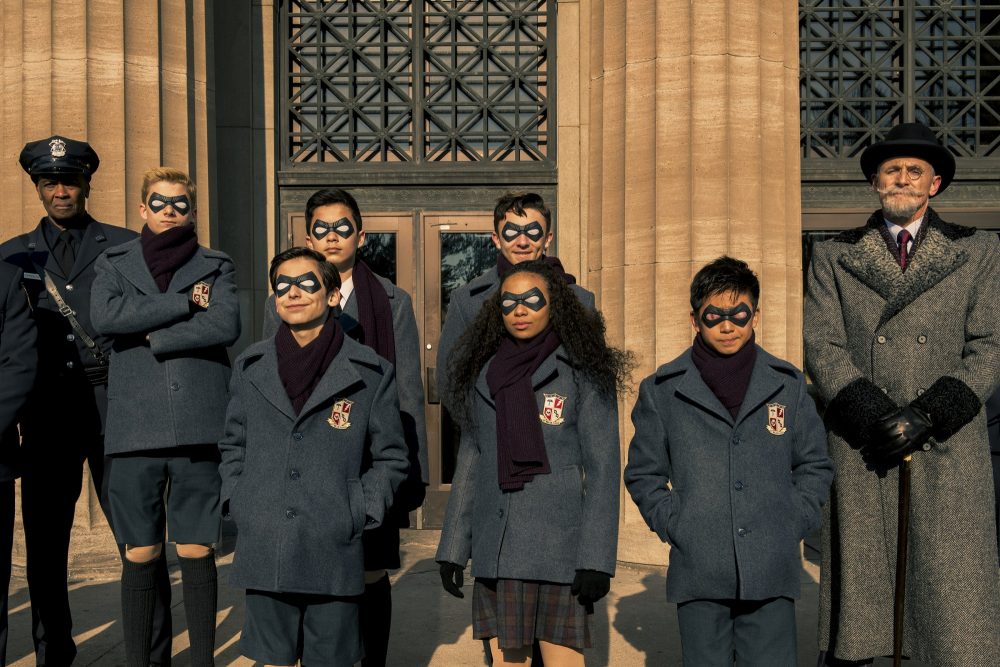
The Umbrella Academy will be available on Netflix on February 15th, 2019. All ten episodes of this season were watched for review.


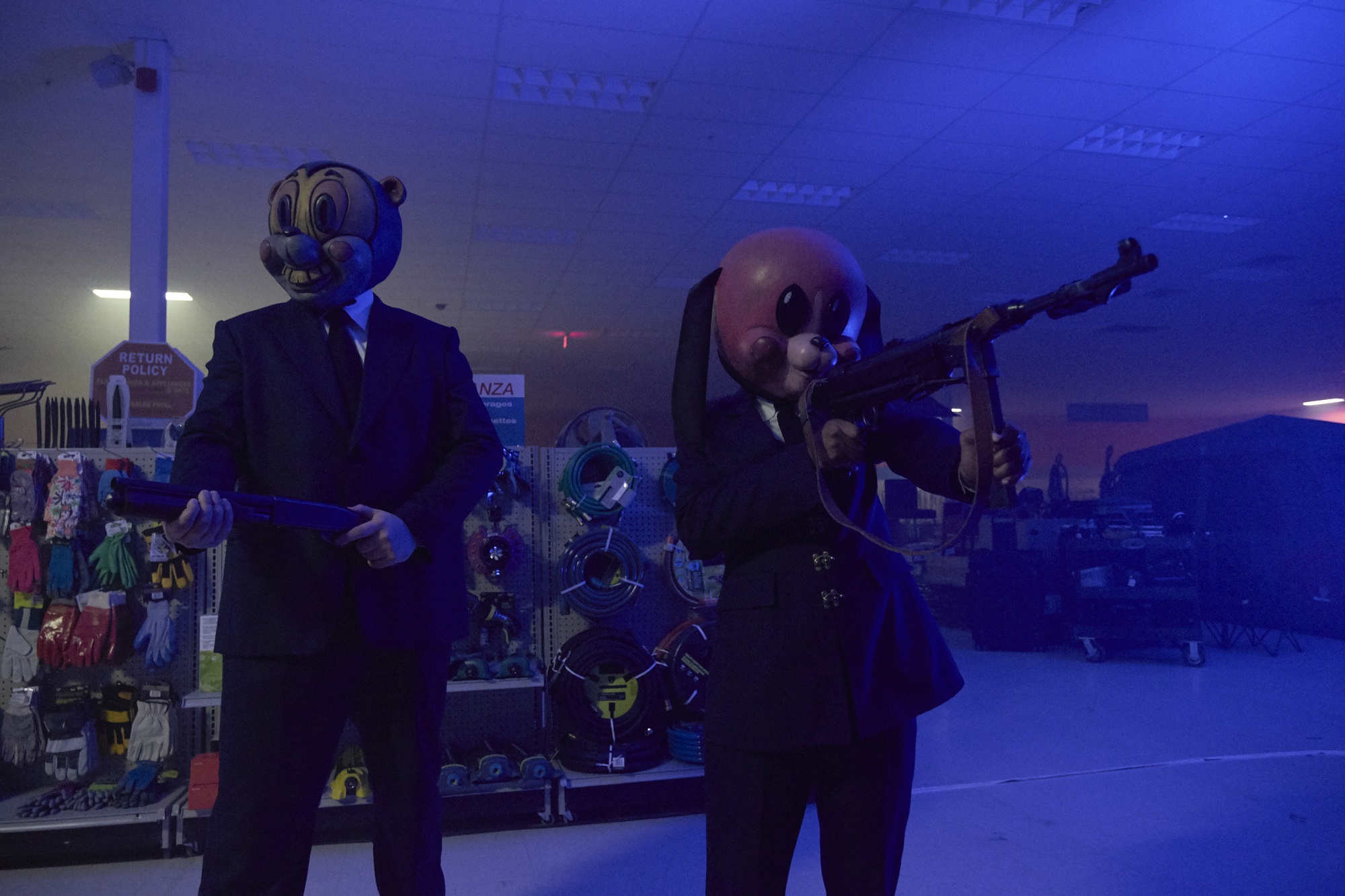
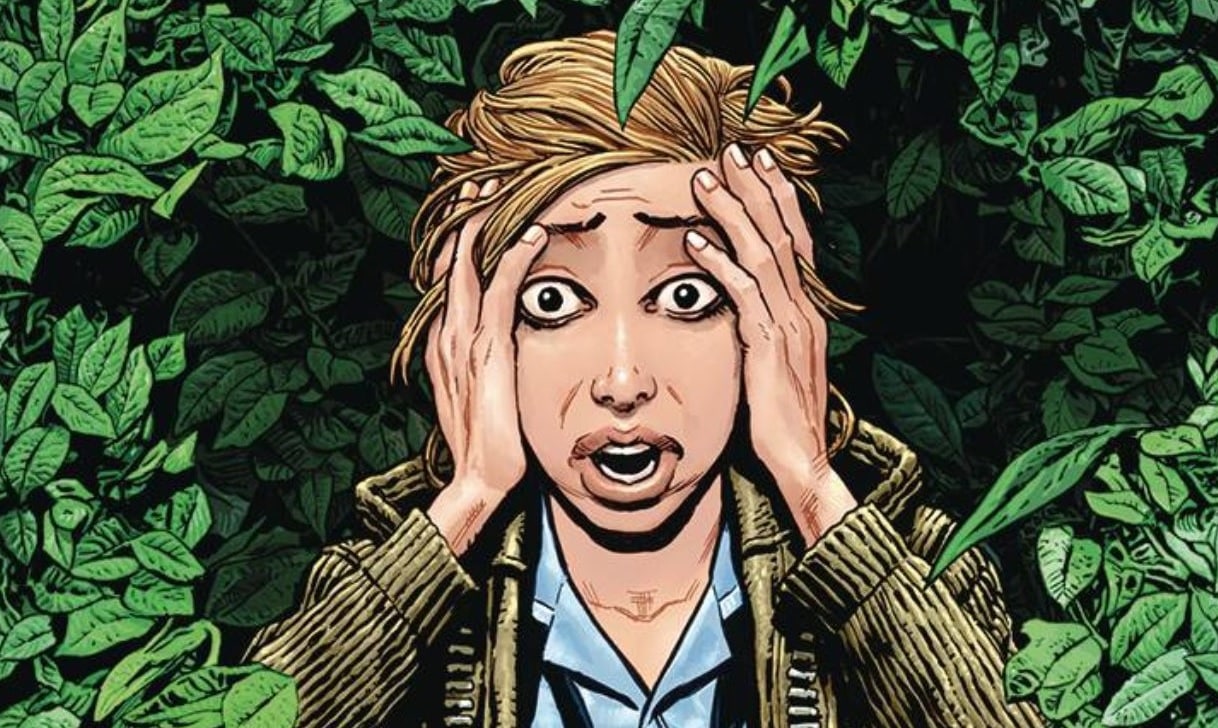

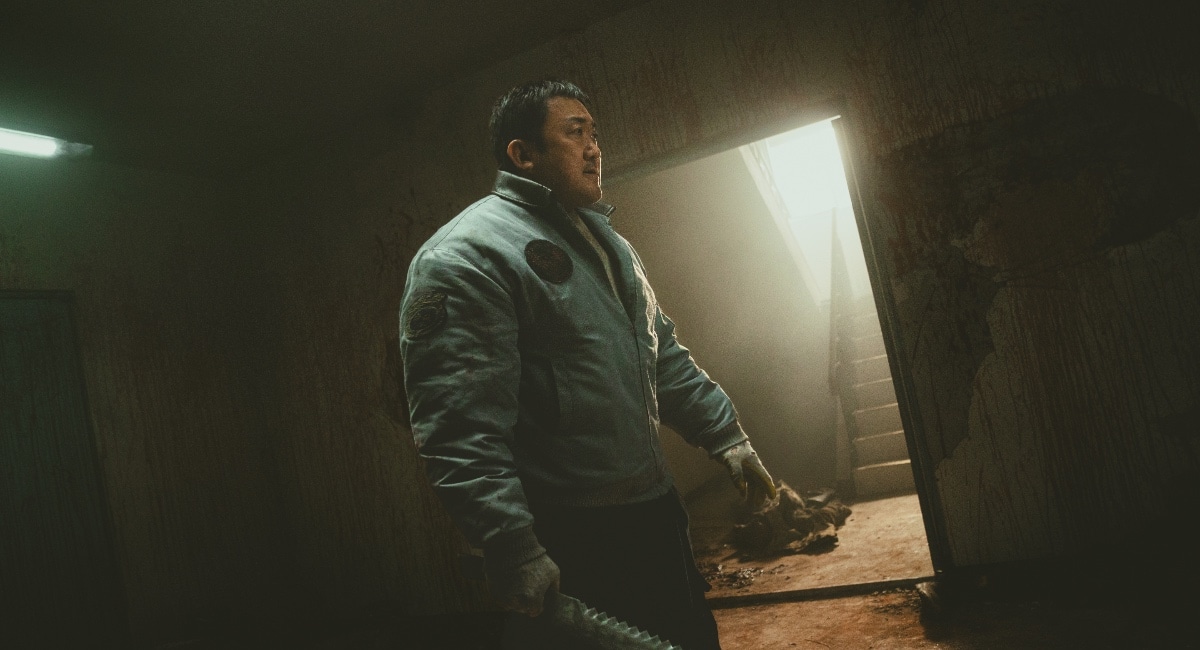



I’ve always thought Wes Anderson was a misanthrope.
Show kinda sucks. I’m only watching ’cause I’m caught up on everything else I watch. It’s worse than Series of Unfortunate Events.
Comments are closed.